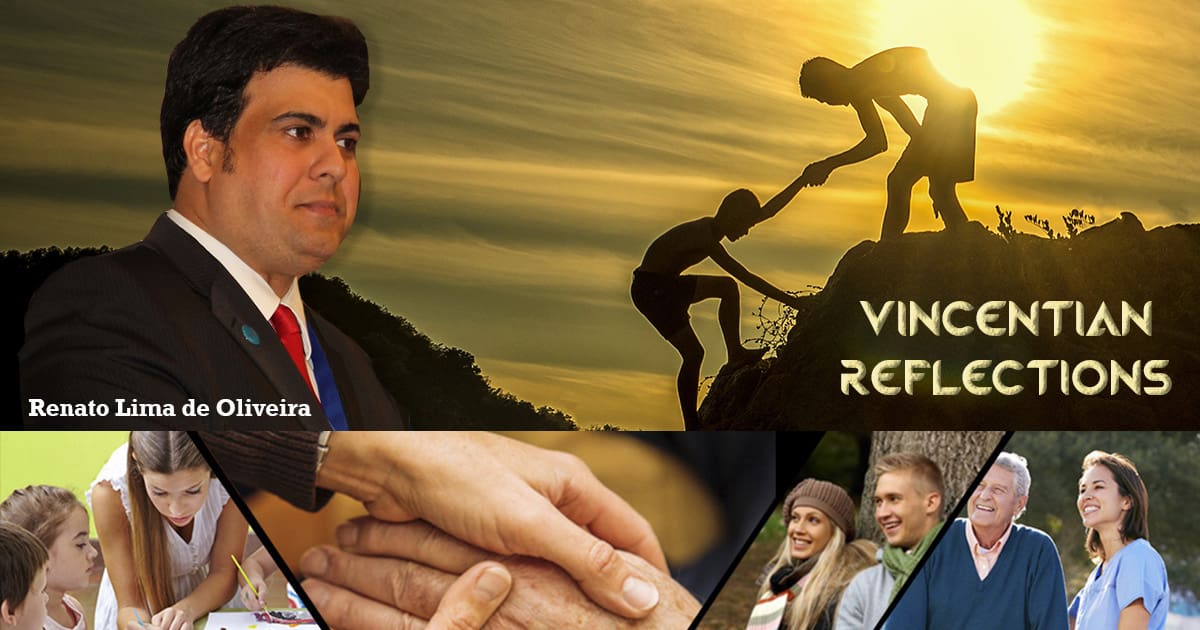Pay attention to the following words: to give from what is left over is not sharing but simply giving alms. Those words are from the song, Corazón Partío (A Broken Heat) which has made the singer, Alejandro Sanz, famous throughout the world. It is amazing that in a romantic and secular song (that is, a non-religious piece of music) we can find a Christian message … and in this case, a Vincentian message.
To share is to distribute. Jesus, in the miracle of the multiplication of the loaves and fish, distributed food to all the people. When we donate clothing and old pieces of furniture, we are not sharing anything but simply getting rid of things that are left over and that are no longer important to us. There is a great difference between alms giving and distributing and donating. We, as members of the Vincentian Family, have to teach the meaning of these concepts to others, especially to our benefactors and donors.
This teaching, however, must be done in a polite and courteous manner because it can easily be misunderstood. How to tell someone that their donation is useless? For example, how do you tell someone that they should not donate socks or underwear, etc. because such items can not be used by another person. In our different ministries we often receive this type of clothing. How do we educate people who want to act in a charitable manner?
The donation of material goods should be combined with the sharing of spiritual goods … the proclamation of the good news of Jesus Christ to the poor is our mission. This proclamation has many effects, primarily, through our words and our actions we are able to transform the life of those persons who are being assisted.
The Document of Aparecida states: We also encounter Him [Jesus} in a special way in the poor, the afflicted, and the sick (cf. Matthew 25:37-40) who reclaim our commitment and give us testimony of faith, patience in suffering, and constant struggle to go on living. How many times do the poor and those who suffer actually evangelize us! In the recognition of this presence and nearness, and in the defense of the rights of the excluded, the Church’s faithfulness to Jesus Christ is at stake (Aparecida, #257).
The same document goes on to state: The encounter with Jesus Christ in the poor is a constitutive dimension of our faith in Jesus Christ. Our option for them emerges from contemplation of his suffering face in them and from the encounter with Him in the afflicted and outcast, whose immense dignity He himself reveals to us. It is our very adherence to Jesus Christ that makes us friends of the poor and unites us to their fate (Aparecida, #257).
Therefore, to be a Vincentian means that we not only share our material possession but that we also be an evangelizer and share our spirituality with others. To engage in the process of evangelization is to participate in the saving work of humankind … a work that is not a human work but a divine work. In other words, to be a Vincentian is first of all a gift of God … what a great gift and how blessed indeed are we!!!
Francis Assisi said we do very little! We ought to learn how to do much with little. We are all invited to act in defense of the “little ones” and to engage in the process of evangelization. The cardinal archbishop of Rio de Janeiro, Orani Tempesta, has taught us that evangelization rhymes with donation [evangelización rima con donación]. The witness of our charitable activity is part of the evangelization process. The Word that we proclaim in the homes of the families that we visit also evangelizes. We can only share these gifts if we have established a relationship with Christ … without that relationship our ministry is reduced to social activism.
A question for dialogue: what is easier to share: our material possessions or our spiritual blessings?
Written by: Renato Lima de Oliveira
16th General President of the Society of Saint Vincent de Paul
Translated: Charles T. Plock, CM
Eastern Province, USA








0 Comments